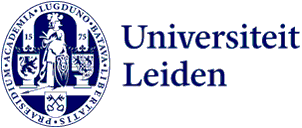
Gerlov van Engelenhoven and Yanise Zijlstra make short film: 'Intangible heritage you can't put into words'
University lecturer Gerlov van Engelenhoven was to be a guest in one podcast by culture maker and anthropologist Yanise Zijlstra on intangible heritage. The collaboration went so well that they are now making a short film together for young people.
When Van Engelenhoven started his Veni project a few years ago on the role of silence in protest movements, he resolved to say 'yes' to as many invitations as possible. 'I prefer to work practically, in collaboration with cultural institutions and artists,' he explains. 'Besides, I had promised NWO a participation study.'
Video podcast
Zijlstra therefore had no difficulty persuading Van Engelenhoven to participate in the video podcast series Unboxing, uitgepakte verhalen
she made for Museum Maluku about intangible Moluccan heritage. 'We had selected all kinds of boxes of objects that we were going to unpack with our guests,' she says. 'That way we could share the rituals and traditions behind them. I had initially approached Gerlov for an episode about the bomber jacket, but I soon found out that he could add a deeper layer because of his scientific background. I then asked him to present some episodes as well.'
For Van Engelenhoven, meanwhile, intangible heritage proved to tie in with his research on silence. 'Traditions and customs like dancing, eating, and embroidery are culturally very valuable, but it's hard to put into words why that is so. For that, you have to perform the actions.'
Everyone can participate
It led to the idea of expanding their collaboration with a short film for young people about intangible heritage aimed not only at the Moluccan community, but at all kinds of migrant groups. 'One of the first moments when I was very conscious of being allowed to do something with my cultural background was when I had a speaking engagement,' Zijlstra says. 'That's how we came up with the idea of a school context, through which we want to introduce young people to intangible heritage in an accessible way.'
Van Engelenhoven and Zijlstra want to put together a 'class' of young people around the first year of secondary school, who will be followed in turn in the run-up to a talk they have to give about something from their cultural background. 'We first approached several cultural funds, but they found it difficult that the video is not intended for one target group,' Van Engelenhoven explains. 'So we eventually ended up with an Impact Explorer grant from NWO, which is meant to explore an unexpected opportunity for social impact.' Within the collaboration, Van Engelenhoven is responsible for the academic input, Zijlstra brings in her technical knowledge as a social partner and also has connections in both the podcasting and intangible heritage sectors as a culture maker.
Van Engelenhoven: 'We aim to start in early 2026 and be ready by autumn of that year. During the first few months, we will probably work towards a film in focus groups or group discussions. Once that is finished, we want to organise screenings for stakeholders, which we’d prefer to combine with a workshop or symposium. And who knows, maybe we can ultimately translate the film into teaching material or expand that one episode into a series to be broadcast by a larger channel, but that’s wishful thinking for now.'
Van Engelenhoven and Zijlstra are still looking for participants in their film with the working title Cultural Treasures. Do you know young people aged between 10 and 14 who would like to say something about their cultural community or cultural practices? If so, please get in touch with g.n.t.j.van.engelenhoven@hum.leidenuniv.nl.
